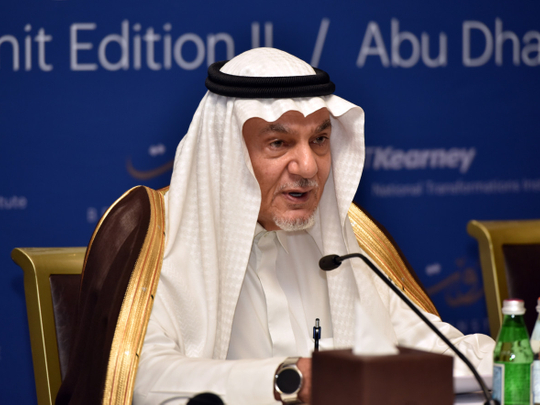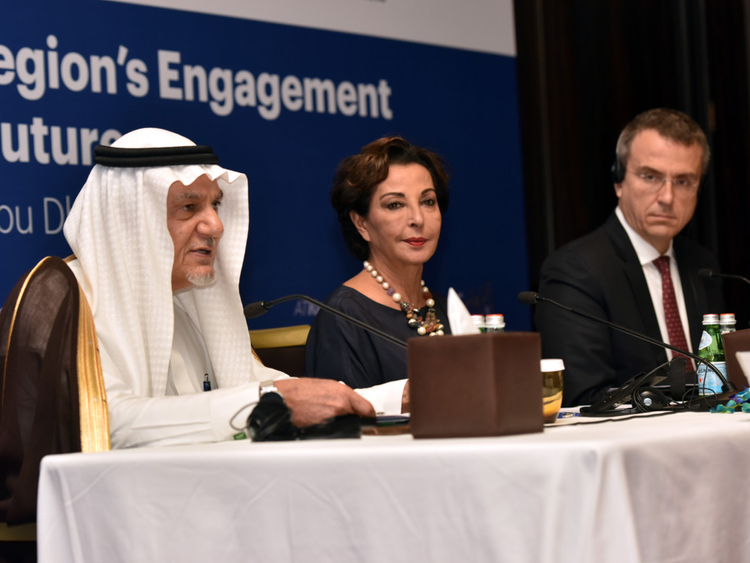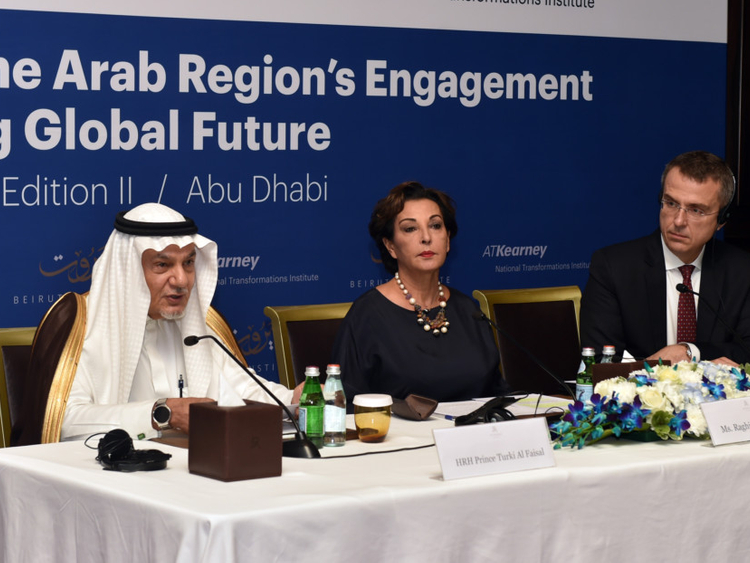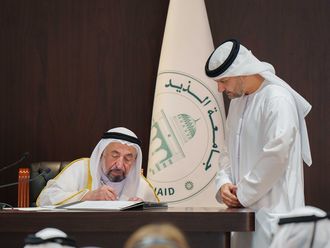
Abu Dhabi: Regional leadership in the Arab world, political, religious, civil society and private sector have to play vital roles to drive towards a more inclusive and tolerant future for the region, the policy recommendations of Beirut Institute Summit said on Saturday.
The second edition of the Beirut Institute Summit was held in Abu Dhabi and its policy recommendation report was announced in the capital on Saturday to tackle a series of security, instability, extremism, terrorism, women empowerment and education issues in the Arab world.
Addressing media, Prince Turki Al Faisal, Chairman of Board at King Faisal Centre for Research and Islamic Studies and co-chair of Beirut Institute Summit, said, “The recommendations of the Beirut Summit concentrate on the issue of the Arab world coming together to re-establish the stability and to help failing states or insecure states to overcome the challenges they face today as a result of their instability and insecurity.”
“In combating terrorism and extremism, on issues of economic progress, climate change and political developments, these recommendations deal with huge titles — men and women and youth. The education plays the most leading role in all of these efforts for the Arab world to get out of the situation we are in, and look forward for more prosperous and most stable region,” he said.
Beirut Institute is an independent non-partisan think tank for the Arab region with activities and events in multiple locations across the Arab region and globally.
The institute brings to fruition a new concept of solution-oriented think tanks in the Arab region as a catalyst for inter-generational, innovative, solution-oriented thinking for current and future policy opportunities and challenges affecting the Arab region and its place in the world.
The report ‘Constructing Arab Region’s Engagement in Emerging Global Future’, stated, “The Arab region continues to face the challenge of sectarian divisions fuelled by actors increasingly skilled at manipulating narratives to sow dissent and fragmentation. In that context, now more than ever, regional leadership — political, religious, civil society, and private sector — must take it upon themselves to drive towards a more inclusive and tolerant future for the region.”
“While generating space for ideological diversity, regional leadership must eradicate the rhetoric behind the Islamist militant movements across the region by persecuting the promotion of intolerance, violence or radical extremism by religious institutions, the media, or individuals online, through social media, or other methods of propagation,” the report said.
Prince Al Faisal said, “Our purpose was to collaboratively generate frank, innovative and compelling insights regarding the specific ways in which the Arab region can most effectively construct its engagement in the emerging global future in the highest interest of all of its people.”
The report stated five fundamental strategic imperatives which include strengthen the forces of order, accelerate the connected regional economic development, promoting whole-of-nation good governance, empowering the diverse people of the Arab region and embracing a technology-fuelled future.














